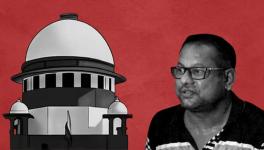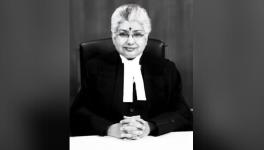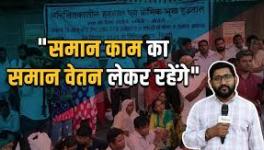Why EWS Quota Changes Everything About Social Justice
Representational Image. File Photo
I begin my lectures on the Fundamental Rights in the Constitution of India by equipping students with three standpoints from which to look at each of these rights. The aim is to provide them with a solid foundation to better understand these rights. I present them as three questions. One: who possesses these rights? Is it the citizens or everyone? The second question is against whom these rights can be enforced—just the State or even private individuals. And finally, are they indeed a right?
In the interest of showcasing the gravity of a recent landmark judgment, Janhit Abhiyan vs Union of India, 2022, on the Economically Weaker Section or EWS reservation, I elaborated on the third standpoint, which is most relevant in its context: Are the fundamental rights indeed a right? This question intends to distinguish between fundamental rights and enabling provisions. All the fundamental rights are enumerated in Part III of the Constitution, but not every provision in Part III is a fundamental right. Provisions related to reservations are not fundamental rights. They are enabling provisions. As the name suggests, they allow or empower the State to make specific laws. Think of these provisions as a license to make laws that otherwise would have been unconstitutional.
For example, Article 15(4) empowers the State to make special provisions for Socially and Educationally Backward Classes, Scheduled Castes, and Scheduled Tribes. It allows the State, among other things, to provide reservations to these groups in education. Article 15(4) was originally not a part of the Constitution. It was added through the Constitution (First Amendment) Act, 1951, with retrospective effect, to give life to those acts that courts have called unconstitutional for violating Article 15, among other provisions. Even though enabling provisions empower the State, they do not obligate it. Put another way, the State is under no obligation to reserve any seats for any group.
In Janhit Abhiyan, the Supreme Court, with a 3:2 majority, upheld the 103rd Constitutional Amendment Act, which provides a 10% quota for the economically weaker section of citizens. The EWS category excludes the SEBCs, the Scheduled Castes, and the Scheduled Tribes. This exclusion reminds me of the popular myth that general category seats are “reserved” for people other than SCs, STs, and OBCs, as the latter categories have already been provided “their share” of seats. We should give due credit to the 103rd Constitutional Amendment and the Janhit Abhiyan case for bringing a little sincerity to the myth.
We return to reservations not being a fundamental right. If the State suddenly stops giving reservations, one’s claim would lie against the State. It also means that State may choose to provide reservations for some categories and deny others. Therefore, it is a theoretical and legal possibility that if the State decides, in the future, only EWS quotas will remain alive, while the State would provide no reservation to Scheduled Castes, Scheduled Tribes, or Other Backward Classes. And, worst of all, to those who wonder, “Could the Supreme Court do anything about it?” The answer is: No.
Another interesting aspect of the Janhit Abhiyan judgment is that two of the three majority judges, justices BM Trivedi JB Pardiwala, have opined that reservations under Articles 15 and 16 should have a time limit. They say it could be a “way forward leading to an egalitarian, casteless and classless society”. This rationale for having a time limit is, at best, a classic fallacy of putting the cart before the horse. At worst, it amounts to blaming the medicine for being the cause of the disease.
Initially, India provided reservations based on specific castes (or gender) to ensure historically marginalised communities’ participation in schooling, workplaces, and government employment. The idea was to bring the historically disadvantaged to mainstream public life and affairs. Therefore, one might say, a time will come when a sufficient representation of these communities and genders has been achieved and the historical wrongs have been rectified. Hence, there would be no need for reservations at that time. However, reservations only on an economic basis have a unique problem. Unlike other kinds of reservations, it is difficult to imagine a time when there will be no economically weaker section of citizens in society. Therefore, the rationale for EWS reservation could never be written off, making it perpetual.
In the Constituent Assembly, Dr BR Ambedkar said, “Democracy in India is only a top-dressing on an Indian soil, which is essentially undemocratic….” He also said, “In politics, we will have equality, and in social and economic life, we will have inequality... We must remove this contradiction at the earliest possible moment, or else those who suffer from inequality will blow up the structure of political democracy, which this Assembly has laboriously built up.” In Indra Sawhney vs Union of India (1992), The Supreme Court unambiguously stated there could be no reservation solely on economic criteria, as the Constitution did not provide for it. The primary idea behind reservation was to provide representation and not poverty alleviation.
The EWS reservation seems like a reservation for males in a historically male-dominated society because they are poor, while it excludes females, even though they, too, are poor. The rationale for excluding women would be that they are already getting a reservation to address their disproportionately low representation due to gender-based discrimination. Such logic would ignore that the reason women get reservations is different from why other reservations exist and that if the State decides to provide reservations based on economic criteria, women must have equal claims to it.
Even though the Constitution now provides for reservations solely on an economic basis, the glaring exclusion of SC, ST and OBC gives the State a potential tool for discrimination. The question is not whether this tool would be misused but whether it could be misused. The basic structure doctrine was made while answering whether Parliament can delete the Constitution. The Supreme Court had to answer that question irrespective of the fact that the Parliament might never even attempt that. In 1975, only two years after it was recognised, this doctrine saved Indian Democracy in Indira Nehru Gandhi vs Raj Narain. In the same way, the actual effects of the 103rd Constitutional Amendment and the Janhit Abhiyan judgment would only be visible with time, as in the words of Oliver Wendell Holmes—the life of the law has not been logic: it has been experience.
The author is a PhD scholar of law and political science at the Central University of Punjab, Bathinda. The views expressed are personal.
Get the latest reports & analysis with people's perspective on Protests, movements & deep analytical videos, discussions of the current affairs in your Telegram app. Subscribe to NewsClick's Telegram channel & get Real-Time updates on stories, as they get published on our website.
























